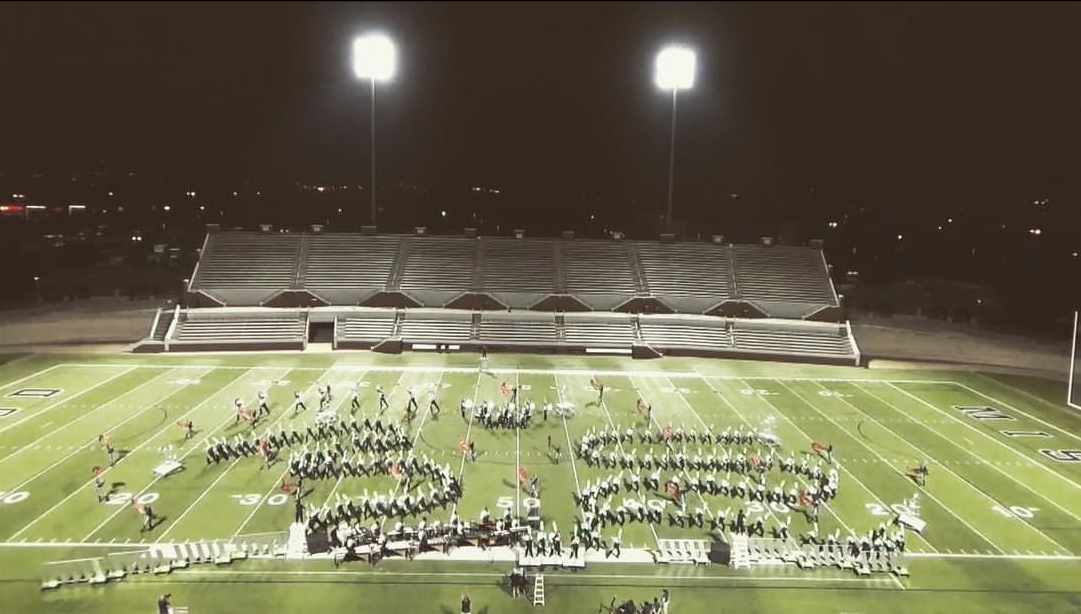As half-time starts, the crowd quiets down, and the marching band files out onto the field. They have rehearsed endlessly for this performance, memorizing their movements and steps, all for one half-time show. The director signals for the band to start, and music erupts from the field. When the performance ends, the crowd cheers and the band marches off of the field.
Marching band takes up a lot of time between rehearsals, games, and competitions. This, combined with a student’s normal schoolwork, leaves little time for much else. Sophomore Ella Beason says the workload can cause stress and burnout.
“Especially around competition season, you get really burnt out. It’s really important to stay on top of everything and get it done as soon as you get it, because you know you’re not going to want to get it done after shows or rehearsals. You just have to get on it,” said Beason.
Marching band can take both a physical and mental toll on a student. Beason feels that marching band requires making sacrifices for your health.
“Physically I’m pretty knocked out, especially after a competition. Even just after yesterday’s rehearsal, I’m so sore, but it’s usually not too bad once you build up that endurance. Mentally, you do start to get tired because you’re missing out on sleep, especially getting home at one or two in the morning from competitions,” said Beason. “You sacrifice sleep, you sacrifice taking care of yourself. You take care of yourself just enough to get by. It’s a little exhausting, but I think it’s definitely worth it.”
Despite the toll marching takes, students continue to march year after year because of all the fantastic experiences marching band can provide. Freshman Jana Alie says playing with the band has been a fun experience.
“The best part is the memories you make with most of the people playing and you make a lot of new friends. I just have a lot of fun doing it with many other people,” said Alie.
The directors of the marching band help the students get together, play cohesively, and they support them throughout performances. Without them, the band would be disorderly. Alie thinks her band directors are invaluable to the marching band.
“Our directors, Mr. Bonebrake and Mr. Ocasio are great. They work with the students a lot and they’re able to pump us up and make us proud of our performance,” said Alie.
Directing the band is also a rewarding experience. Band director Albert Ocasio loves to see his students excited after a performance.
“The most rewarding part is seeing students perform, and then their reactions after a performance when they know that they’ve put out a solid performance after they’ve given it everything they’ve got. Seeing them really excited and talking to their friends is really rewarding for us directors,” said Ocasio.
Competitions have a unique effect on the marching band. The students can be stressed by the amount of work and importance placed on competitions, but directors like Ocasio urge them to relax.
“It’s subjective, there are five judges usually and sometimes you get the results you want from the judges, and sometimes the judges don’t like what you’re putting out there. But we try to impress upon our kids that you shouldn’t base your worth on what you’re getting from the judges,” said Ocasio. “Ultimately, in five or ten years from now you’ll look back on this and think about how hard you worked, the people you worked with, and all of your friends. You won’t remember what place you got in random contests but you will remember the work you put into it.”
The marching band is a hard-working group of students who put their all into halftime shows, competitions, and rehearsals. Despite the sacrifices to their mental and physical health, the band continues to enjoy performing year after year.


